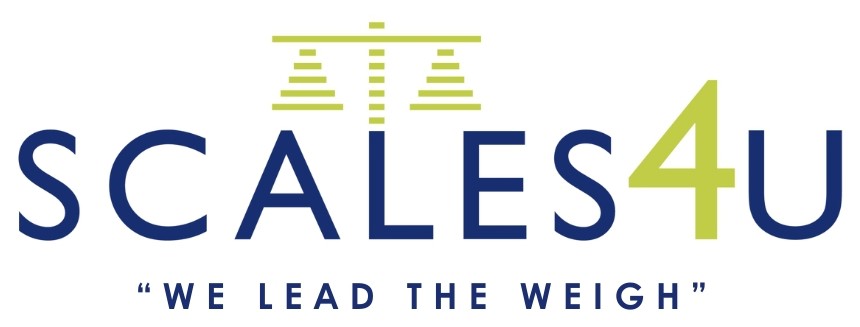Understanding the Science of Precision Weighing
We don’t always think of weighing object, because for some of us, it’s not something we do every single day. Think about it: when last did you weigh yourself or ingredients in a kitchen? Unless you’re an athlete or a chef, the chances are slim to none. What we don’t think about, is how to accurate weighing affects industries.
But weight has a lot more prevalence in our society than what we think. Loads of industries use weighing, from manufacturing and logistics to pharmaceuticals and food production. But have you ever wondered how scales work and what ensures their precision? The accuracy of a scale goes beyond simply placing an object on a platform—it involves intricate scientific principles, calibration techniques, and advanced technologies to deliver reliable measurements.
In this article, we’ll explore the hidden science behind accurate weighing, why precision matters, and how different industries depend on it for success.
How Do Scales Work?
Scales operate on the basic principle of measuring force—specifically, the force an object exerts due to gravity. Different types of scales use various mechanisms to convert this force into a measurable weight:
Mechanical Scales: Utilize springs or balances to measure weight based on counteracting force.
Digital Scales: Use load cells that convert force into an electrical signal, which is then processed to display an accurate weight reading.
Analytical Balances: Used in laboratories, these highly sensitive scales use electromagnetic force compensation to achieve extreme precision.
While the underlying physics may differ, the core goal remains the same: ensuring accurate, repeatable, and consistent weight measurements.
Why Does Precision Matter?
Industrial & Manufacturing Efficiency
In sectors like manufacturing and logistics, even the smallest weighing errors can lead to significant financial losses. Incorrect weights can affect inventory management, shipping costs, and production efficiency.
Example: A factory packaging food products relies on precise weight measurements to avoid underfilling (leading to customer dissatisfaction) or overfilling (increasing costs and waste).
Pharmaceutical & Healthcare Compliance
Precision in medical weighing is critical for patient care, pharmaceutical formulation, and laboratory research. Even a 0.1g discrepancy can alter a medication’s effectiveness.
Example: Pharmaceutical companies must ensure that drug dosages are precisely weighed to meet strict regulatory standards (such as FDA or ISO compliance).
Legal-for-Trade Accuracy in Retail
Retail businesses using scales for commercial transactions (such as grocery stores or jewelry shops) must meet legal-for-trade standards. A scale that inaccurately weighs products could lead to financial losses or legal penalties.
Example: In grocery stores, inaccurate produce scales could either shortchange customers or cause business revenue loss over time.
Laboratory & Research Applications
Scientific research often requires microgram-level precision. Analytical balances used in labs are designed to detect minuscule changes in mass, helping researchers conduct experiments with high accuracy.
Example: In chemical labs, mixing compounds at exact weights is necessary for consistent, reproducible results.
Factors That Influence Weighing Accuracy
Even the most advanced scales can be affected by external factors, including:
- Temperature Fluctuations: Changes in temperature can cause load cells to expand or contract, affecting readings.
- Air Currents & Vibrations: Sensitive laboratory balances can pick up external air movement, causing slight weight fluctuations.
- Calibration & Maintenance: Regular calibration ensures a scale remains accurate over time. A scale that isn’t properly maintained can gradually drift from its original accuracy.
- Surface & Leveling: Placing a scale on an uneven surface can cause inaccurate readings.
- Electromagnetic Interference (EMI): High-tech environments with electrical interference can impact digital scale sensors.
Pro Tip: Always place scales on stable, vibration-free surfaces and regularly calibrate them using certified weights to ensure accuracy.
The Future of Weighing Technology
With advancements in technology, modern scales are becoming smarter, more precise, and integrated with AI-driven analytics. Future trends in the weighing industry include:
- IoT-Connected Scales: Internet-enabled scales for real-time weight tracking and remote monitoring.
- Automated Calibration: Self-adjusting scales that correct their accuracy without human intervention.
- AI & Machine Learning: Smart scales that predict and correct weight deviations.
- Nanotechnology Scales: Ultra-precise balances capable of measuring at atomic levels.
As industries demand even greater precision, the weighing industry will continue to evolve, offering enhanced accuracy, efficiency, and automation.
Accuracy is Everything
Accurate weighing is more than just numbers on a screen—it’s a critical factor in ensuring quality, compliance, efficiency, and profitability. Whether you’re in manufacturing, healthcare, retail, or research, investing in precision weighing technology can make all the difference.
At Scales 4 U, we specialize in providing industry-leading weighing solutions tailored to your needs. Whether you require high-precision lab balances, industrial weighbridges, or commercial scales, we have the expertise to help you choose the perfect scale for your application.
Looking for accurate weighing solutions? Contact us today. Click here.


